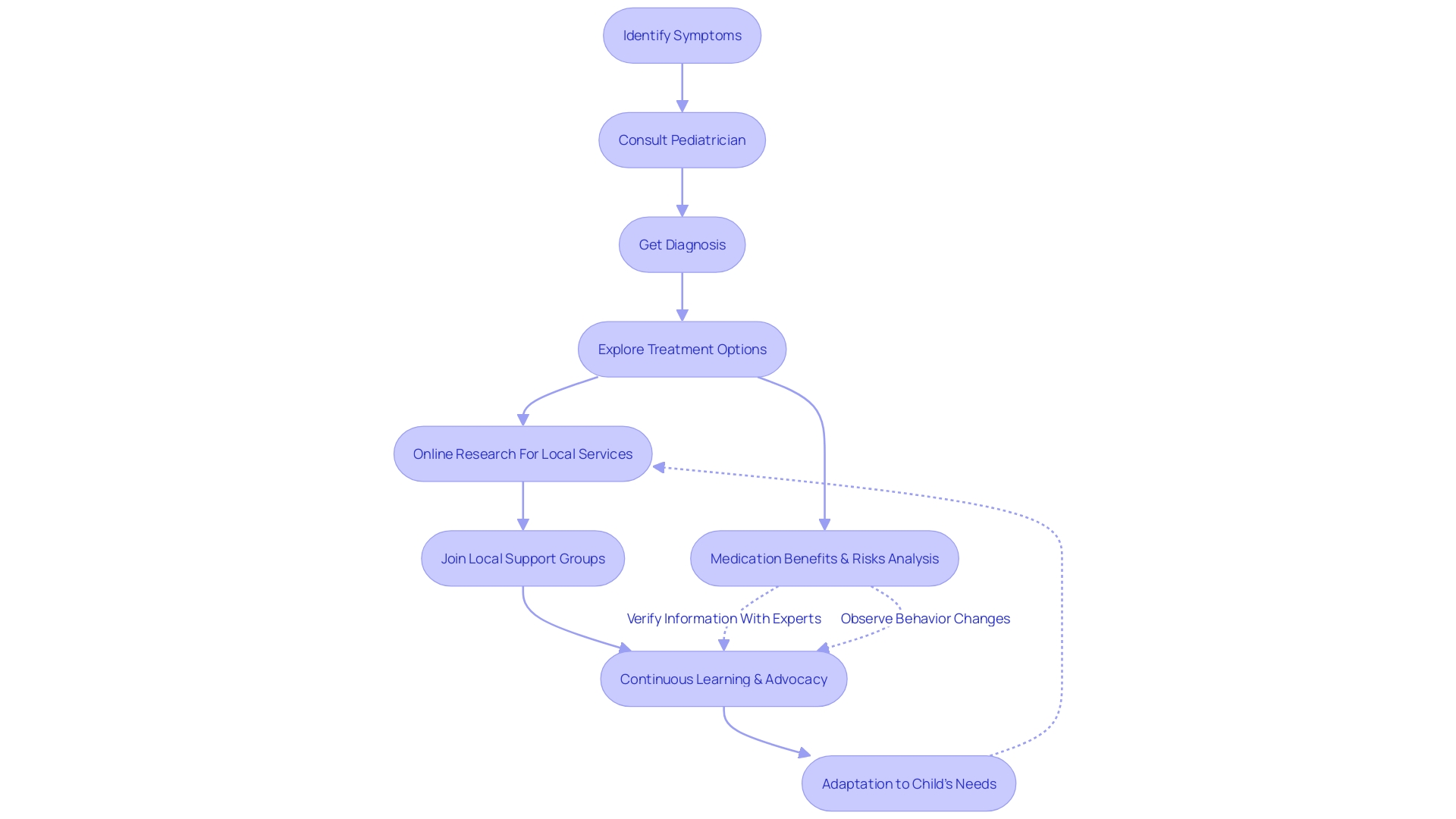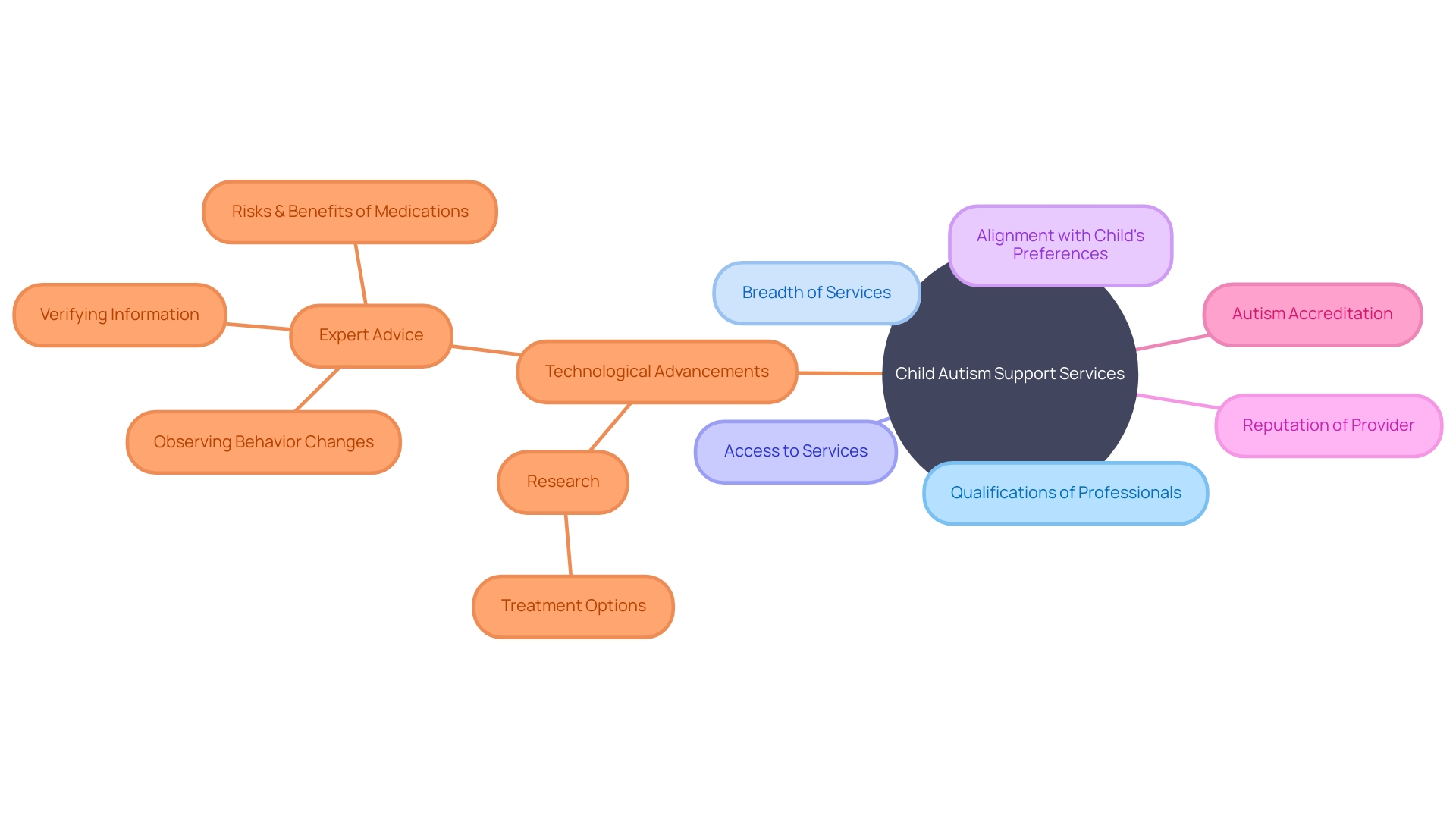Introduction
Children diagnosed with Autism Spectrum Disorder (ASD) and Attention-Deficit/Hyperactivity Disorder (ADHD) face unique challenges that impact their communication, behavior, and attention abilities. The need for equitable opportunities in order to support their mental health and overall well-being cannot be understated. In this article, we will explore the importance of local autism and ADHD services, strategies for finding these services, and evaluate how to choose the right service for your child.
By understanding the available resources and staying informed, parents can empower themselves to advocate for their child's well-being, ensuring they have an equal chance to thrive and succeed in life.
I. Understanding Autism and ADHD
Children diagnosed with Autism Spectrum Disorder (ASD) and Attention-Deficit/Hyperactivity Disorder (ADHD) encounter a varied spectrum of challenges that interplay with their communication, behavior, and attention abilities. As they navigate daily life, we recognize that just as Dr. David (Dan) R. Offord emphasized, access to equitable opportunities is essential for mental health and societal justice.
Autism manifests in diverse ways, including issues with social cues, communication hurdles, and certain repetitive behaviors, while ADHD primarily involves symptoms of inattention, hyperactivity, and impulsivity. Amy Harland's perspective as an educator underscores the frequency and significance of these differences, specifically how they necessitate adjustments in the classroom setting, where teaching strategies must be tailored to the individual needs of over two-thirds of students with disabilities in some schools.
In order to foster an engaged and supportive environment for these children, it's vital to address both their unmet needs and the strengths they contribute. This involves devising strategies to ease chronic stressors, both in educational and leisure settings, and providing resources for families to support their child's positive growth, as seen with initiatives like the National Disability Insurance Scheme (NDIS) in Australia, and early intervention programs that enhance communication, social skills, and behavior management.
Alarmingly, systemic pressures are mounting, as evidenced by a rise in new autism referrals over the last year. The overwhelming number of children waiting for an autism assessment by mental health services indicates an urgent need for support expansion.
Vigilance in research is paramount, from ongoing updates in treatment practices to discerning the benefit-risk balance of prescribed medications. Parental involvement extends to being well-informed about the potential impacts of different therapies, particularly in the face of copious and occasionally dubious online narratives. Through this, we continue to learn and adapt, striving to provide the most effective support possible.
It is an undeniable right that education should be inclusive and empowering for every child. Within Australia's educational landscape, the integration and support of children with ASD are integral to unlocking their potential, signifying a commitment to ensuring no child lags in the figurative race of life.
II. Importance of Local Autism and ADHD Services
Local services dedicated to autism and ADHD possess transformative powers for families navigating the complexities of these conditions. In the UK, for example, the Autism Accreditation program, established by the National Autistic Society, has authorized over 500 organizations to ensure they meet a rigorous standard of support for autistic individuals. This program empowers various services, including schools and local authorities, to continuously evolve and enhance the assistance they offer, mirroring the value of an interconnected support network for parents and children.
In addition, initiatives like the Transforming Care Navigators amalgamate the expertise of health and education professionals to provide tailored support to those with autism and learning disabilities, reinforcing just how impactful these services can be in managing the everyday challenges that come with these conditions. As reflected in the words of Dr. David (Dan) R. Offord, achieving equitable participation in societal domains for children with disabilities is pivotal to their mental health and overall well-being. As such, tapping into local intervention services equips parents with the necessary resources to enable fair participation and ensures the sustainable development of their children, much akin to a fair race where every child has an equal chance to thrive.
III. Strategies for Finding Local Autism Services
Securing the right support services for children with autism and ADHD doesn't have to be overwhelming. For parents embarking on this journey, the initial step is to engage with their child's pediatrician or healthcare provider. These professionals are not only equipped to provide tailored recommendations but can also offer valuable referrals to trusted specialists and resources within their extensive networks.
Exploring online resources can further complement these efforts by presenting a wealth of information on local services such as therapists, support groups, and specialized programs. This digital approach has the advantage of breadth and customization, enabling parents to filter options that meet the specific needs and circumstances of their child.
Moreover, community is indispensable. Joining local support groups or online forums opens doors to shared experiences and collective wisdom. Engaging with families who have walked similar paths creates an environment of mutual support, where practical tips and personal insights can help demystify the process of finding the most beneficial services for a child's unique challenges.
In light of the ever-evolving landscape of autism and ADHD services, it is crucial to remain informed and proactive. Continuous learning and adaptation ensure that parents can advocate effectively for their child's continual engagement, wellbeing, and equitable participation in all life's domains—from school to social activities.
Navigating the complex array of available services ultimately serves a higher purpose: empowering children to bring their unique strengths to their communities, alleviate stressors, and flourish in an equitable race to personal development and fulfillment.

IV. Evaluating and Choosing the Right Service
Selecting the ideal support service for a child with autism involves a meticulous assessment of several pivotal factors. Parents must scrutinize the qualifications of professionals, ensuring they align with their child’s needs. The breadth of services provided is equally important, as is the utility and ease of access to these services.
A critical aspect to evaluate is how the services resonate with the specific preferences and requirements of the child. The service provider’s reputation, grounded in experiences of others within the community, could offer invaluable insights. Families are encouraged to delve deeply into any available testimonials or reviews from fellow parents.
For instance, services with Autism Accreditation stand out for their commitment to excellence, implementing a continual self-improvement framework recognized worldwide. Over 500 entities — including schools, playgroups, and support services — have achieved this distinction, assuring a high-quality support ecosystem. Such accreditation is a testament to a provider's dedication to creating an equitable learning and developmental environment for autistic children, akin to making the race fair for all participants, as emphasized by the late Dr. David (Dan) R. Offord.
Technological advancements continue to augment the diagnostic and support landscapes, with new research revealing automated devices that can measure a child's gaze patterns to predict autism diagnoses with impressive accuracy. Such groundbreaking studies underscore the importance of staying abreast of the latest developments that may enhance the care and support available.
When considering treatment options, including medications, it is the responsibility of caregivers to thoroughly research the benefits and potential risks. Discussions with experts are crucial to discern between reliable treatments and dubious alternatives. A New York-based Board-Certified Behavior Analyst echoes this sentiment, underscoring the importance of knowledgeable and coordinated care.
With access to current information and expert advice, parents are better equipped to make informed decisions, ensuring their children's well-being and fostering a nurturing environment for them to thrive.

Conclusion
In conclusion, children with Autism Spectrum Disorder (ASD) and Attention-Deficit/Hyperactivity Disorder (ADHD) face unique challenges in communication, behavior, and attention. To support their well-being, it is crucial for parents to advocate for equitable opportunities. By understanding available resources, parents can empower themselves to find the right local services for their child.
Local autism and ADHD services have the power to transform the lives of families. Accreditation programs ensure high standards of support, while resources enable fair participation and sustainable development.
Finding the right support doesn't have to be overwhelming. Engaging with healthcare providers, exploring online resources, and joining local support groups provide valuable recommendations and connections. Staying informed and proactive is key.
When evaluating services, consider qualifications, the range of support offered, and provider reputation. Reviews and testimonials from fellow parents provide invaluable insights. Accreditation programs demonstrate a commitment to excellence and equity.
Thorough research is essential when considering treatment options, including medications. Seek expert advice and stay informed to make informed decisions. By empowering themselves, parents can nurture their child's well-being and help them thrive.
In summary, through accessing local services, utilizing available resources, and making informed choices, parents can support their children's growth and success. Every child deserves an equal chance to thrive, and with the right support, they can overcome challenges and reach their full potential.
Join our community and empower your child's growth and success today!




